#queer blm
Text
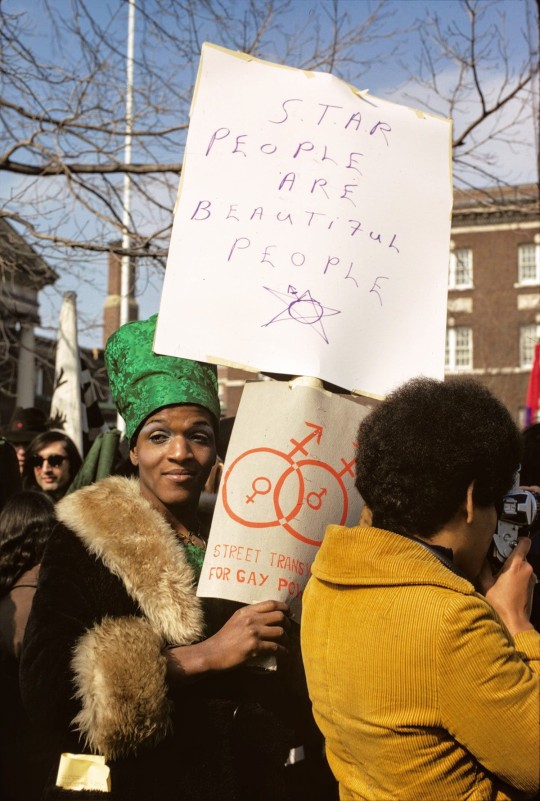
Marsha P. Johnson, co-founder of Street Transvestite Action Revolutionaries, at a gay rights demonstration in Albany, New York, March 14, 1971. Photo by Diana Davies.
#1970s#community#people#blm#culture#street#society#queer#trans#pride#gender#activism#black history#lgbtqia#humanity#queer history#marsha p johnson#70s#transgender#politics#counterculture#🌈
17K notes
·
View notes
Text
"No Pride for some of us without liberation for all of us." -Marsha P. Johnson



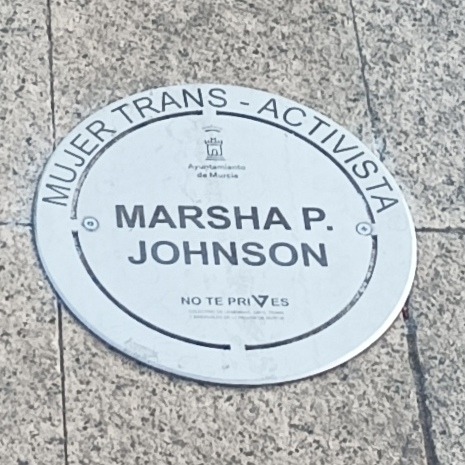
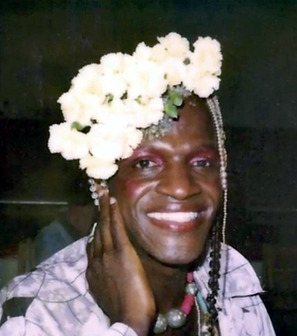
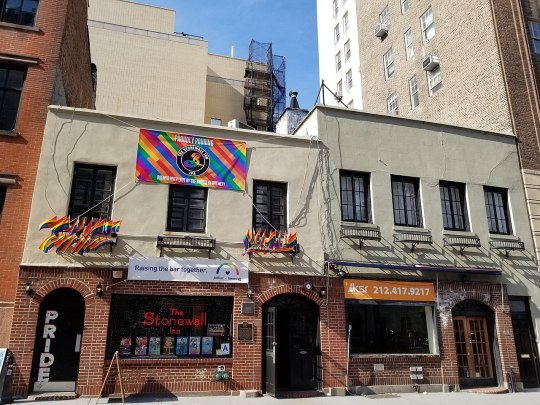

#the first pride was a riot#remember your roots#marsha p johnson#other#black#women#and other#humans#opened the door#stonewall riots#paved the way#blm#black lives matter#black women#trans rights#intersectional social justice#intersectional feminism#us history#queer history#BIPOC history#queer bipoc#lgbtq+ history#1980s#queer#lgbtq#lgbtq history#ivy speaks#gnc#drag#transgender
8K notes
·
View notes
Text
-fae
#aave#african american vernacular english#black lives matter#blm#black lives still matter#black history#drag balls#queer history
4K notes
·
View notes
Text
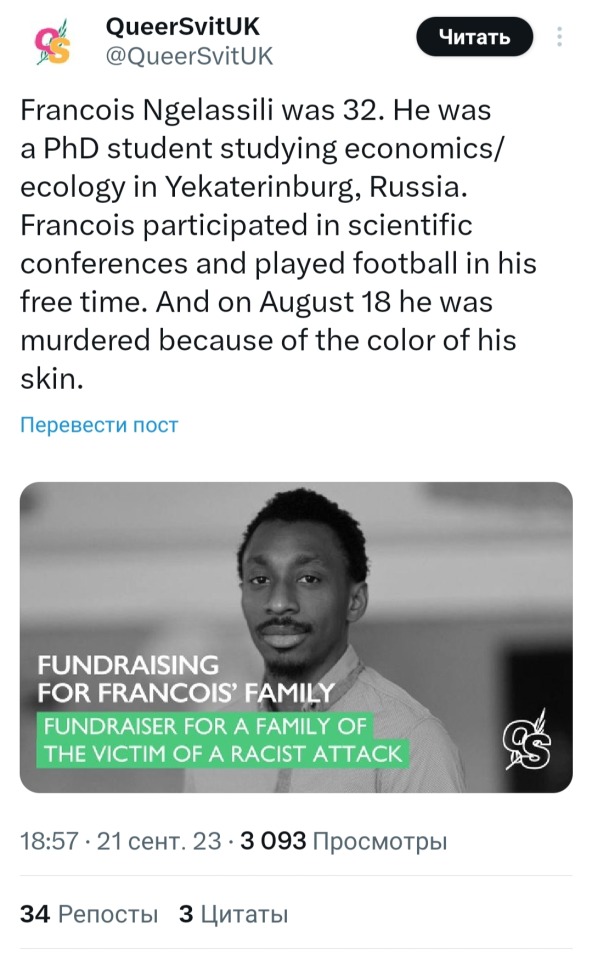

Help Francois' family to get a lawyer. Donation requsites:
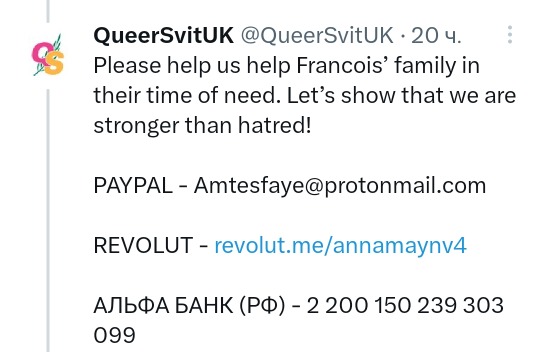
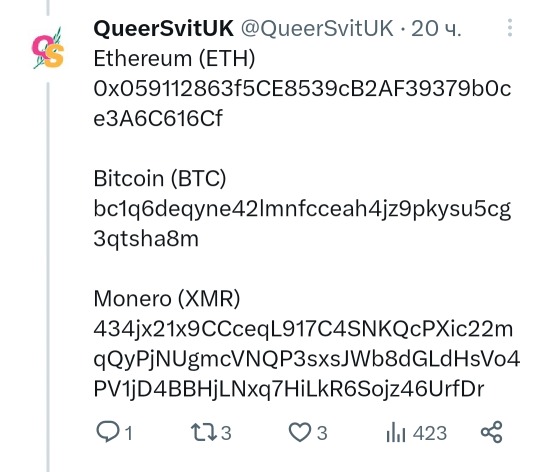
Link to the original thread:

С российских карт можно тоже задонатить:
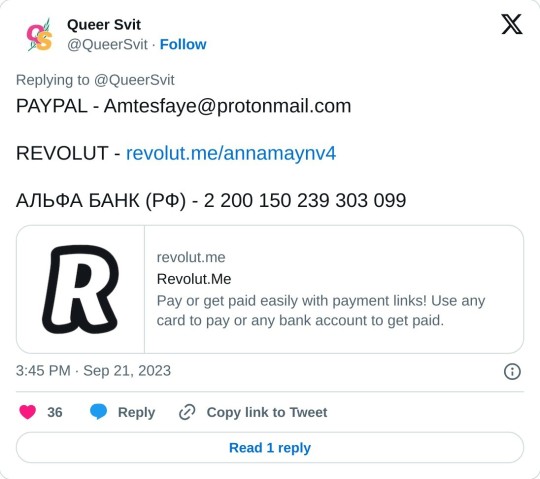
#queer svit#russian news#blm#black lives matter#boost#signal boost#fundraiser#francois ngelassili#françois ngelassili
1K notes
·
View notes
Text
Hey, pro tip for allies of marginalized groups(any kind of marginalized group, queer, disability, race- anything)
If someone is describing how they had a sucky experience bc of whatever marginalized group they're a part of- that is not the time to say something like "oh I've never had that problem!" Or "this solution always fixed it for me!"
Maybe your intentions are good. Like, genuinely trying to help.
But what comes across is; I, as an ally, know more about this problem that you, the marginalized person, have experienced.
Or maybe your intentions were more
"I will feel good after helping this poor marginalized person, which should be easy, bc that problem never was a big deal for me!"
than you consciously realized.
PS one thing all allies ought to educate themselves on is which problems are the kind of problems where it's best to offer sympathy and a listening ear, and move on, versus which ones you can use your privilege to help with. There's a difference between venting about a problem vs actually seeking help and support.
#disability#disabled#queer#spoonie#plural#blm#stop asian hate#actually autistic#autistic#activism#allyship#food allergies#adults with autism
528 notes
·
View notes
Text

#lgbt#lgbtq#lgbtqiaplus#love is love#love wins#blm#black lives matter#lgbtq positivity#lgbtq post#important psa#be kind always#stay kind#be kind#always be kind#be your true self#lesbian#gay#bisexual#transgender#queer#questioning#intersex#asexual#agender#nonbinary#enby#genderqueer#genderfluid
580 notes
·
View notes
Text
“Let people have different opinions” no, this isn’t Marvel vs DC or Barbie vs Oppenheimer or something. This is human rights. You either want everybody to have them or you don’t. And I won’t just live with the fact that you don’t want everyone to have BASIC HUMAN RIGHTS.
#wanting people to be oppressed is not just an opinion#human rights#politics#free palestine#palestine#free gaza#black lives matter#blm#feminism#feminist#lgbtqia#queer pride#anti racism#anti sexism#anti homophobia#anti transphobes
140 notes
·
View notes
Text
Abolition For Beginners (2023 Edition)
In honor of Tyre Nichols and all others we have lost to policing and imprisonment. In honor of Black History Month. In honor of Better Future Program's mission to educate and serve marginalized youth globally... Let's break down abolition, again. (As usual on Tumblr, tap for better quality.)
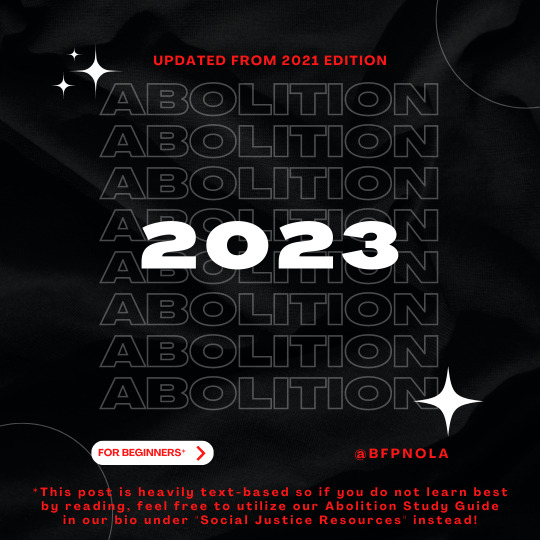
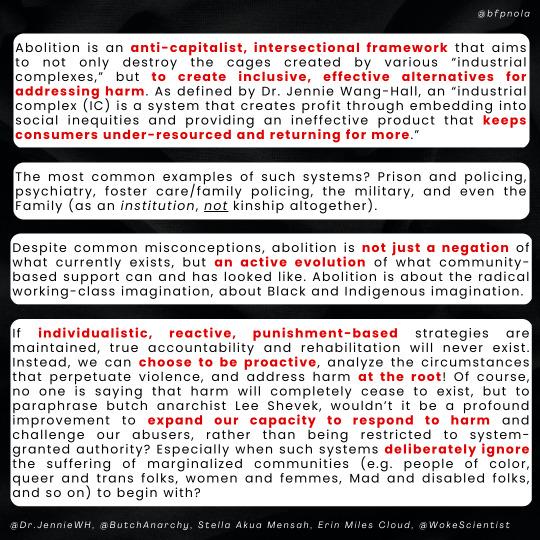

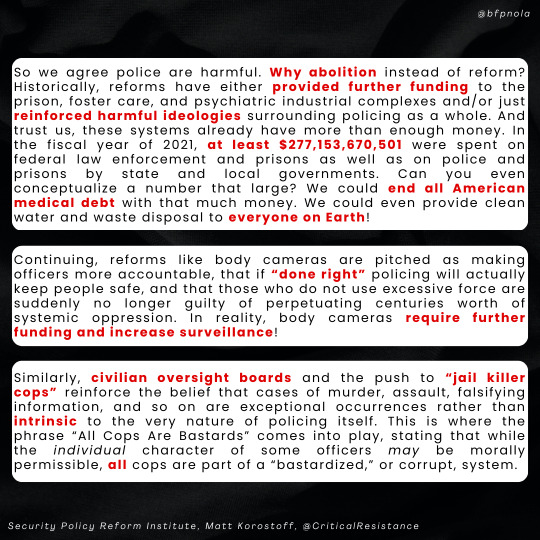
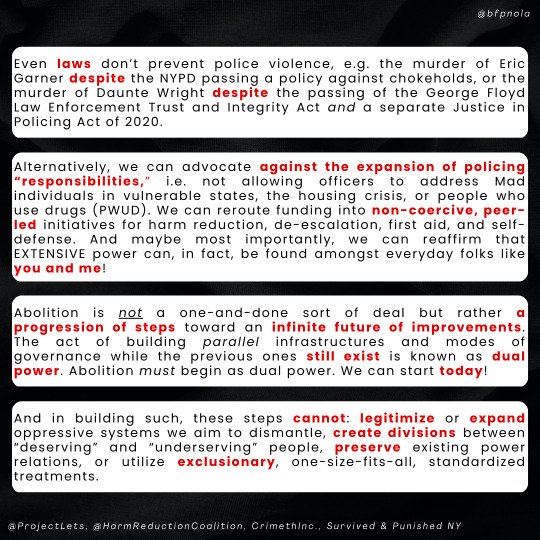
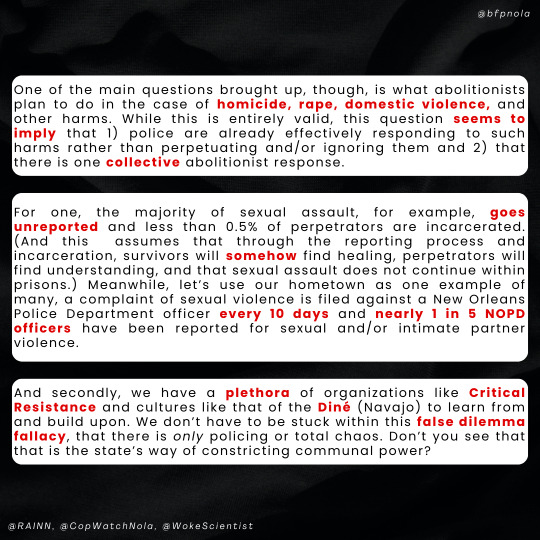

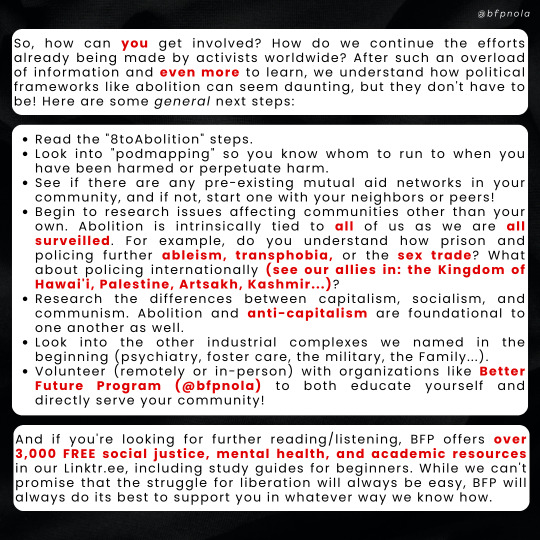
Better Future Program's Linktr.ee | Donate | Liberation Library | Open Leadership Positions | Staff Application | Discord Server
Image description below. Written by @reaux07. Proofread by the volunteers and supporters of @bfpnola.
Image Description:
[ID: All of the following slides use a wrinkled, black fabric as their background with black text (bolded red added for emphasis) on top of white boxes with rounded corners. “@bfpnola” is written in the top right corner and the sources for the slide are in the bottom left corner.
Title Slide (No. 1):
Written in red text, “UPDATED FROM 2021 EDITION.” The outlines of the word “ABOLITION” is written line by line 8 times in light grey with the year “2023” written on top in bold, white lettering. Below, written in red within a white bubble and red arrow, it reads “FOR BEGINNERS*.” Across from the bubble, “@BFPNOLA” is in red. Below, in red again, the asterisk mentioned before leads to the following note: “This post is heavily text-based so if you do not learn best by reading, feel free to utilize our Abolition Study Guide in our bio under "Social Justice Resources" instead!” Lastly, white stars and outlines of grey circles can be seen in each corner of the slide.
Slide No. 2 reads:
Abolition is an anti-capitalist, intersectional framework that aims to not only destroy the cages created by various “industrial complexes,” but to create inclusive, effective alternatives for addressing harm. As defined by Dr. Jennie Wang-Hall, an “industrial complex (IC) is a system that creates profit through embedding into social inequities and providing an ineffective product that keeps consumers under-resourced and returning for more.”
The most common examples of such systems? Prison and policing, psychiatry, foster care/family policing, the military, and even the Family (as an institution, not kinship altogether).
Despite common misconceptions, abolition is not just a negation of what currently exists, but an active evolution of what community-based support can and has looked like. Abolition is about the radical working-class imagination, about Black and Indigenous imagination.
If individualistic, reactive, punishment-based strategies are maintained, true accountability and rehabilitation will never exist. Instead, we can choose to be proactive, analyze the circumstances that perpetuate violence, and address harm at the root! Of course, no one is saying that harm will completely cease to exist, but to paraphrase butch anarchist Lee Shevek, wouldn’t it be a profound improvement to expand our capacity to respond to harm and challenge our abusers, rather than being restricted to system-granted authority? Especially when such systems deliberately ignore the suffering of marginalized communities (e.g. people of color, queer and trans folks, women and femmes, Mad and disabled folks, and so on) to begin with?
Sources: @Dr.JennieWH, @ButchAnarchy, Stella Akua Mensah, Erin Miles Cloud, @WokeScientist
Slide No. 3 reads:
Before we continue any further, let’s destroy the myth that cops actually stop violence. First off, we can’t depend on crime stats at face value because this begs the question of who exactly gets to define what counts as a “crime” and why (e.g. drug possession and sleeping in public vs. tax evasion of the wealthy and wage theft). Continuing, crime rates often only reflect violations that have actually been reported, chosen to be shown, and deemed out of line. By this logic, crime rates are simply reflections of cops’ perceptions, not of the material and emotional realities of the proletariat (i.e. the working-class).
As for perpetuating violence, “US law enforcement killed at least 1,183 people in 2022, making it the deadliest year on record for police violence.” (And those are just the deaths that were reported. In our home state of Louisiana, turns out the Jefferson Parish Sheriff’s Office, as of January 12, 2023, has been unlawfully destroying records of officer misconduct for at least 10 years.) Many (69%) of these murders were cases in which no offense was alleged, were mental health or welfare checks, or involved traffic violations and other nonviolent offenses.
This is, of course, without even touching on the involuntary servitude (i.e. enslavement) and maltreatment ongoing in American prisons. How many more deaths must occur before the general public says enough is enough? Or is this acceptable since these are working-class, disabled, Mad, non-white, queer, and trans lives being lost?
Sources: @InterruptCrim, The Guardian, Mapping Police Violence, @VeriteNewsNola
Slide No. 4 reads:
So we agree police are harmful. Why abolition instead of reform? Historically, reforms have either provided further funding to the prison, foster care, and psychiatric industrial complexes and/or just reinforced harmful ideologies surrounding policing as a whole. And trust us, these systems already have more than enough money. In the fiscal year of 2021, at least $277,153,670,501 were spent on federal law enforcement and prisons as well as on police and prisons by state and local governments. Can you even conceptualize a number that large? We could end all American medical debt with that much money. We could even provide clean water and waste disposal to everyone on Earth!
Continuing, reforms like body cameras are pitched as making officers more accountable, that if “done right” policing will actually keep people safe, and that those who do not use excessive force are suddenly no longer guilty of perpetuating centuries worth of systemic oppression. In reality, body cameras require further funding and increase surveillance!
Similarly, civilian oversight boards and the push to “jail killer cops” reinforce the belief that cases of murder, assault, falsifying information, and so on are exceptional occurrences rather than intrinsic to the very nature of policing itself. This is where the phrase “All Cops Are Bastards” comes into play, stating that while the individual character of some officers may be morally permissible, all cops are part of a “bastardized,” or corrupt, system.
Sources: Security Policy Reform Institute, Matt Korostoff, @CriticalResistance
Slide No. 5 reads:
Even laws don’t prevent police violence, e.g. the murder of Eric Garner despite the NYPD passing a policy against chokeholds, or the murder of Daunte Wright despite the passing of the George Floyd Law Enforcement Trust and Integrity Act and a separate Justice in Policing Act of 2020.
Alternatively, we can advocate against the expansion of policing “responsibilities,” i.e. not allowing officers to address Mad individuals in vulnerable states, the housing crisis, or people who use drugs (PWUD). We can reroute funding into non-coercive, peer-led initiatives for harm reduction, de-escalation, first aid, and self-defense. And maybe most importantly, we can reaffirm that EXTENSIVE power can, in fact, be found amongst everyday folks like you and me!
Abolition is not a one-and-done sort of deal but rather a progression of steps toward an infinite future of improvements. The act of building parallel infrastructures and modes of governance while the previous ones still exist is known as dual power. Abolition must begin as dual power. We can start today!
And in building such, these steps cannot: legitimize or expand oppressive systems we aim to dismantle, create divisions between “deserving” and “underserving” people, preserve existing power relations, or utilize exclusionary, one-size-fits-all, standardized treatments.
Sources: @ProjectLets, @HarmReductionCoalition, CrimethInc., Survived & Punished NY
Slide No. 6 reads:
One of the main questions brought up, though, is what abolitionists plan to do in the case of homicide, rape, domestic violence, and other harms. While this is entirely valid, this question seems to imply that 1) police are already effectively responding to such harms rather than perpetuating and/or ignoring them and 2) that there is one collective abolitionist response.
For one, the majority of sexual assault, for example, goes unreported and less than 0.5% of perpetrators are incarcerated. (And this assumes that through the reporting process and incarceration, survivors will somehow find healing, perpetrators will find understanding, and that sexual assault does not continue within prisons.) Meanwhile, let’s use our hometown as one example of many, a complaint of sexual violence is filed against a New Orleans Police Department officer every 10 days and nearly 1 in 5 NOPD officers have been reported for sexual and/or intimate partner violence.
And secondly, we have a plethora of organizations like Critical Resistance and cultures like that of the Diné (Navajo) to learn from and build upon. We don’t have to be stuck within this false dilemma fallacy, that there is only policing or total chaos. Don’t you see that that is the state’s way of constricting communal power?
Sources: @RAINN, @CopWatchNola, @WokeScientist
Slide No. 7 reads:
To expand this conversation, abolition heavily aligns with the political ideal of “anarchism.” Anarchism supports the absence of government and absolute freedom of the individual. And despite its negative connotations, anarchy also reflects an evolution of community-based care rather than just a deconstruction of what currently exists.
A simplified version of its 6 agreed-upon principles are:
Autonomy and Horizontality: define yourself on your own terms, we stand on an equal footing
Mutual Aid: bonds of solidarity form a stronger social glue than fear, support your community
Voluntary Association: associate or don't associate with whomever you wish
Direct Action: accomplish goals directly rather than depending on representatives or authorities
Revolution: overthrow those in power who enforce coercive hierarchies (ex. white supremacy)
Self-Liberation: you must be at the forefront of your own liberation, freedom must be taken
While being an abolitionist does not require alignment with anarchism, it is worth considering how the state plays such an enduring role in various social harms. Concurrently, whenever you treat other living beings with consideration and respect, come to reasonable compromise rather than coercion, and decide to share or delegate tasks, you are already living by anarchist principles.
Sources: Peter Gelderloos, David Graeber
Slide No. 8 reads:
So, how can you get involved? How do we continue the efforts already being made by activists worldwide? After such an overload of information and even more to learn, we understand how political frameworks like abolition can seem daunting, but they don't have to be! Here are some general next steps:
Read the "8toAbolition" steps.
Look into "podmapping" so you know whom to run to when you have been harmed or perpetuate harm.
See if there are any pre-existing mutual aid networks in your community, and if not, start one with your neighbors or peers!
Begin to research issues affecting communities other than your own. Abolition is intrinsically tied to all of us as we are all surveilled. For example, do you understand how prison and policing further ableism, transphobia, or the sex trade? What about policing internationally (see our allies in: the Kingdom of Hawai'i, Palestine, Artsakh, Kashmir...)?
Research the differences between capitalism, socialism, and communism. Abolition and anti-capitalism are foundational to one another as well.
Look into the other industrial complexes we named in the beginning (psychiatry, foster care, the military, the Family...).
Volunteer (remotely or in-person) with organizations like Better Future Program (@bfpnola) to both educate yourself and directly serve your community!
And if you're looking for further reading/listening, BFP offers over 3,000 FREE social justice, mental health, and academic resources in our Linktr.ee, including study guides for beginners. While we can't promise that the struggle for liberation will always be easy, BFP will always do its best to support you in whatever way we know how.
End ID.]
#reaux speaks#signal boost#tyre nichols#keenan anderson#cop city#abolition#abolish the police#defund the police#anti capitalism#intersectional feminism#palestine#black lives matter#blm#bipoc#disability justice#queer#trans#mass incarceration#study guide#mad liberation#psychiatry#family#military industrial complex#foster care#ACAB#tw rape mention#indigenous#anarchism#pinned post#BLACK HISTORY MONTH
727 notes
·
View notes
Text


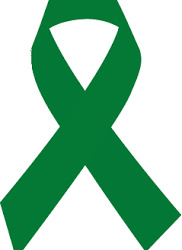
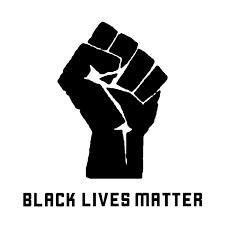
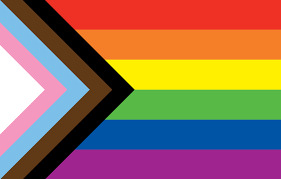
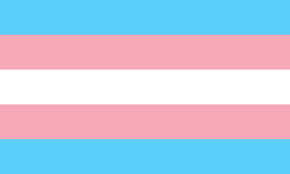
celebrating everyone this pride month!!!!!! stay safe my lovlies <3
#autism#neurodiversity#disability#disabled queers#mental health matters#mental health#blm#black lives matter#lgbtq community#gay#lesbian#bisexual#pansexual#omnisexual#polysexual#abrosexual#asexual#aromantic#transgender#nonbinary
347 notes
·
View notes
Text
Things we must remember in 2024:
1) Free Palestine
2) Queer rights
3) What's happening in Iran, Afghanistan, Palestine, etc...
4) Black lives matter
5) Mental health matters
6) Everything about human rights
#lgbtq italia#lgbtq#free palestine#queer for palestine#disability#transgender#pride#adhd#autism#trans boy#enby#non binary#abro#blm#black lives matter#mahsa amini#transfeminism#transfemminismo#feminism#intersectional feminism#intersectionality#queer rights#mental health awareness
110 notes
·
View notes
Text
Too be honest, probably the four most neglected topics in leftist spaces as a whole is landback/indigenous rights, nonwhite rights and experiences (black communist/anarchist movements etc.), feminism (especially radicalized militant feminism), and disability accessibility/experiences (both physical and mental(like cluster B disorders especially). Not in that order btw, I believe all 4 of those are interconnected.
My one tip for people getting into leftist spaces, no matter which one it is, is to learn about the most neglected topics especially and to listen to people apart of the above groups. It is going to frustrate the shit out of you and you're going to learn a lot of the leftists around you hold onto the Patriarchy/White Supremacy etc. But you are going to empower both yourself and those around you for the better by educating yourself.
#left#queer#lgbt#leftist#anarchy#leftism#anarchism#anarchist#communist#communism#socialism#socialist#blm#blacklivesmatter#landback#indigenous#disability#cluster b#covid#wear your mask#feminism#kylr#anarcha feminism
212 notes
·
View notes
Text
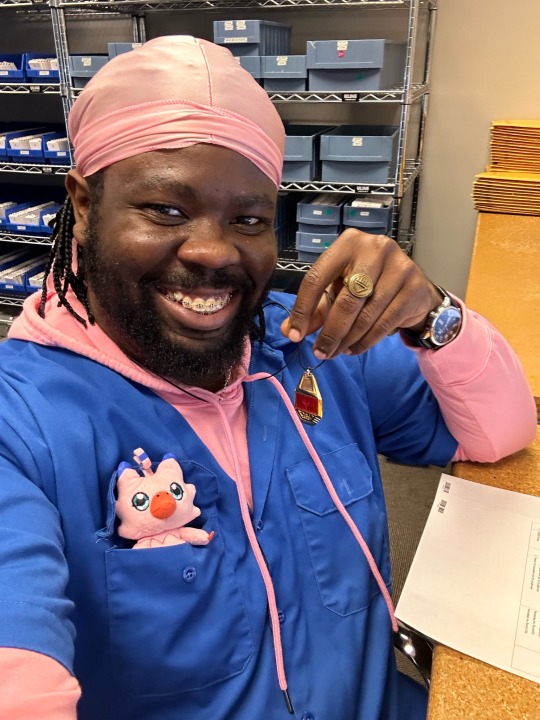
One of my coworkers got me a Biyomon plush for Christmas since he knew I like Digimon. Literally ended up wearing the perfect outfit to match my new daughter by accident. ❤️
93 notes
·
View notes
Text
I hate when twats spill out shit like:
"i'M aGaInSt InTeRsEcTiOnAlItY bEcAuSe EaCh GrOuP's StRuGgLeS aRe DifFeReNt"
That doesn't change the fact that each group struggle.
Feminism aims to fight the patriarchy, which predominantly affects women. Especially black women. But the patriarchy negatively affects men too. Not to the same extent, but they are affected nonetheless.
Trans people, especially black trans women, have always fought for the rights for queer people and other people. They started this entire thing.
Black Lives Matter is a movement focused on combatting systemic racism in our societies and governments.
Can you see the connection between these examples? Everyone is affected by what these groups are fighting against. We are all stronger together.
Even if our individual struggles are different, a problem shared is a problem halved.
#lgbt#lgbtq#lgbtqia#lgbtq community#queer#queer liberation#queer community#feminism#trans#trans rights#blm#black lives matter#it's like they forgot that we owe our rights to black trans women
125 notes
·
View notes
Text
*this poll was submitted to us and we simply posted it so people could vote and discuss their opinions on the matter. if you’d like for us to ask the internet a question for you, feel free to drop the poll of your choice in our inbox and we’ll post them anonymously (for more info, please check our pinned post)
#incognito polls#jew#jewish#trans#transgender#transmasc#trans woman#trans man#blm#black lives matter#israel#lgbt#lgbtq#queer#poc#woc#women of color#politics#tumblr polls#tumblr#news#polls#poll#tumblr poll
34 notes
·
View notes
Text
"I only make offensive jokes/say slurs with my friends so its ok."
not really. look at it this way,
when I was a teen, my dad would beat me if he caught me saying swears. however I was able to say swears around my friends cause they didn't care. but lo and behold, I slipped up in front of my dad once, even though I was damned scared of him. it just happened involuntarily.
point is, you will eventually slip up in public. and when that happens, people will assume you're a racist/ queerphobe/ transphobe/ misogynist. why? cause its safer for them to assume that and stay the fuck away, than hang around since people are dumbfucks that want to kill over what others cannot change.
#lgbtq#queer#lgbtq community#lgbtqplus#lgbt pride#lgbtqiia+#queer community#transgender#trans#trans rights#blm#antiracism#black lives matter#poc#tw mysoginy#sexism#patriarchy#minorities#minority rights are human rights
35 notes
·
View notes
Text

Pretty fuckin' simple.
#protect women#womans rights#protect our women#blm#lgbtq#queer#muslim#addiction#undocumented#respect our women#all women#captainpirateface#bipolardepression#chemicalimbalance#wtf#overweight#plus sized
589 notes
·
View notes